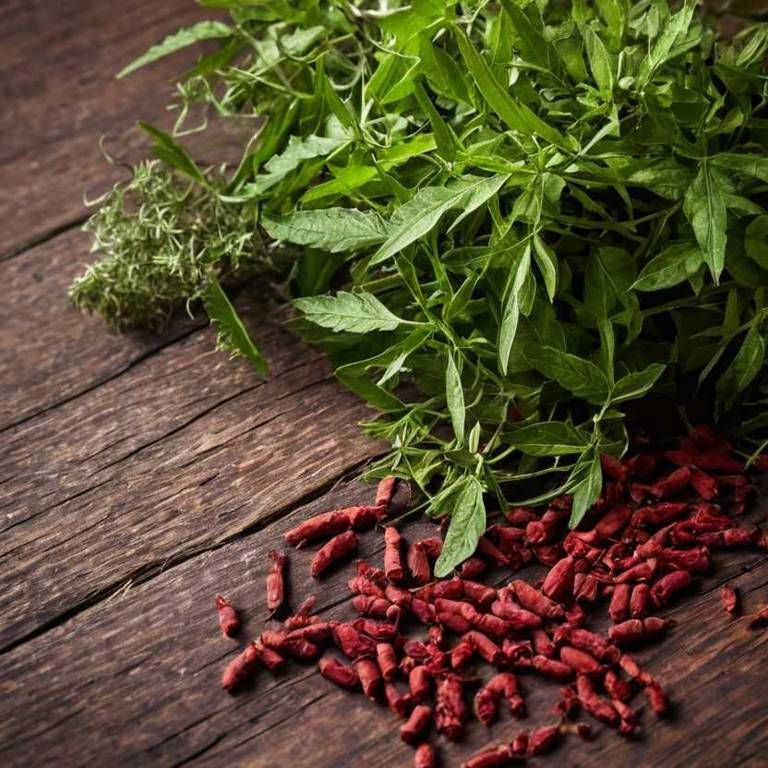By Leen Randell
Updated: Jul 05, 2024
What Are The Medicinal Properties Of Rhus Coriaria (Sumach)?

Rhus coriaria, also known as sumach, has health benefits such as reducing inflammation and improving digestion.
The medicinal constituents of sumach include flavonoids, terpenes, and tannins, which have been found to possess antioxidant, antimicrobial, and anti-inflammatory properties. Sumach is often used in traditional medicine to prepare infusions, decoctions, and ointments to treat various health conditions. However, excessive consumption of sumach may cause gastrointestinal upset and allergic reactions.
It is essential to consult a healthcare professional before using sumach, especially for individuals with allergies or underlying health conditions.
This article explains the health benefits, active constituents, medicinal preparations, possible side effects, and precautions related to Rhus coriaria.
What are the health benefits of Rhus coriaria?
Rhus coriaria, also known as sumac, has health benefits such as reducing inflammation and improving cardiovascular health due to its high antioxidant and polyphenol content.
The extract of the plant has been shown to have antimicrobial properties, helping to fight off infections. Additionally, sumac has been traditionally used to lower blood pressure and improve digestion.
Its consumption is associated with reduced risk of chronic diseases.
Here's a detailed article about the 10 health benefits of Rhus coriaria.
What are the active constituents of Rhus coriaria?
Rhus coriaria, also known as sumach, has active constituents such as tannins, anthraquinones, and flavonoids.
Tannins, a key component, exhibit astringent, anti-inflammatory, and antimicrobial properties. Anthraquinones have been found to possess laxative effects, while flavonoids are associated with antioxidant and anti-inflammatory activities.
These diverse medicinal constituents contribute to the plant's use in traditional medicine for treating digestive issues, skin conditions, and as an antibacterial agent.
Here's a detailed article about the 10 active constituents of Rhus coriaria.
What are the medicinal preparations of Rhus coriaria?
Rhus coriaria, also known as sumach, has medicinal preparations such as infusions, decoctions, and ointments.
The berries and leaves are used to create astringent and antiseptic properties, often employed in treating skin conditions like acne, eczema, and minor wounds. The extract is also used to treat various digestive issues, including diarrhea, indigestion, and inflammation of the urinary tract.
Additionally, sumach is sometimes used to lower blood pressure.
Here's a detailed article about the 10 medicinal preparations of Rhus coriaria.
What are the possible side effect of using Rhus coriaria improperly?
Improper use of Rhus coriaria, also known as sumach, increases the chances of experiencing side effects such as gastrointestinal problems, including nausea, vomiting, and diarrhea.
In some cases, it may also cause allergic reactions, such as skin rashes, itching, and difficulty breathing.
Additionally, consuming sumach in excess or for extended periods can lead to kidney damage and electrolyte imbalances, making it essential to use it under the guidance of a healthcare professional.
Here's a detailed article about the 10 most common side effects of Rhus coriaria.
What precautions to take when using Rhus coriaria medicinally?
Before using Rhus coriaria, also known as sumach, for medicinal purposes, you must take precautions such as consulting a qualified healthcare professional, especially if you have allergies or sensitivities.
It's also essential to use it in moderation and in accordance with recommended dosages, as excessive use can cause skin irritation, gastrointestinal issues, or interactions with other medications.
Additionally, be aware of potential allergens and contaminants, and use high-quality, organic sources when available.
Here's a detailed article about 10 precautions to take when using Rhus coriaria.